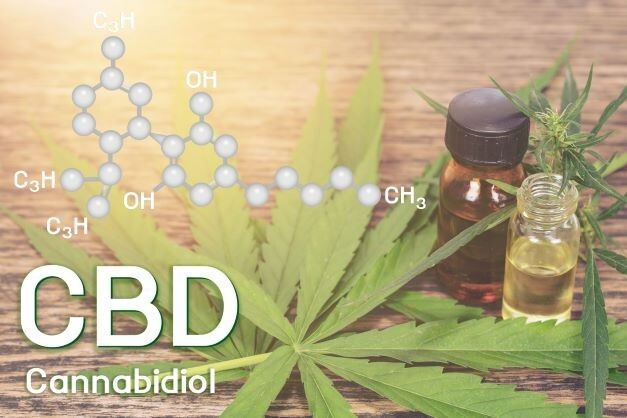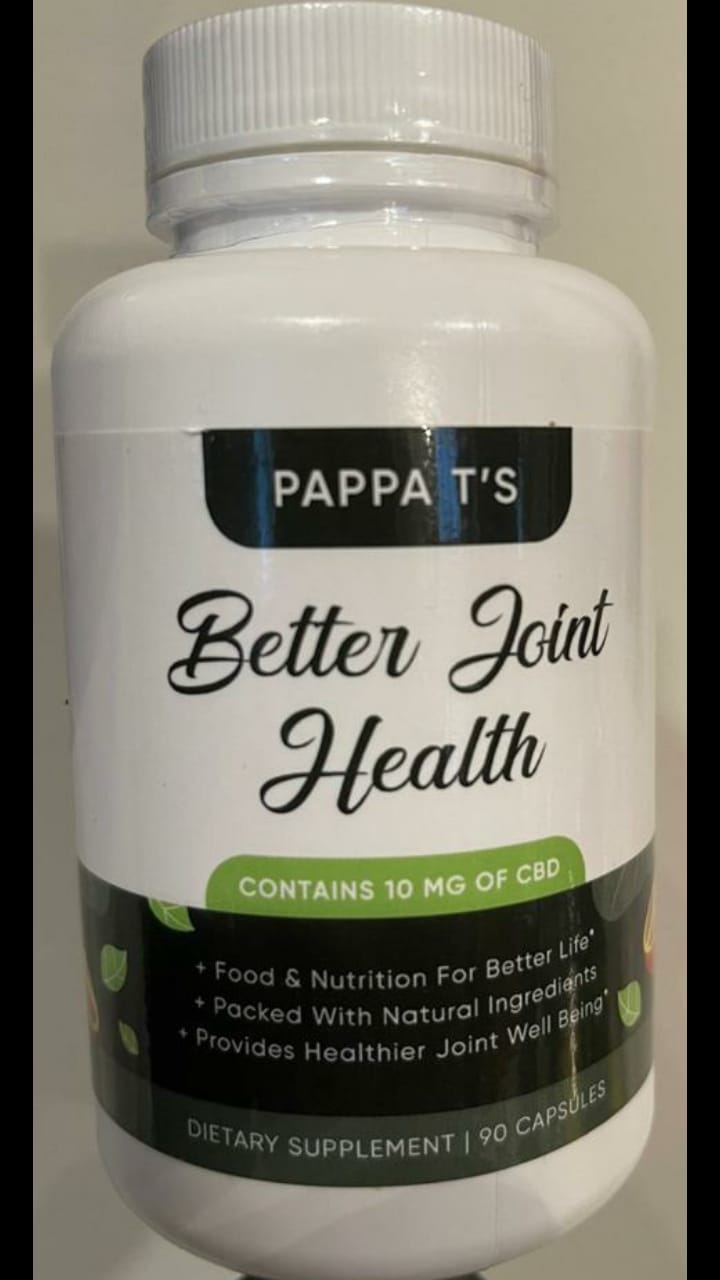What is CBD?
Chances are, you may not have heard of it, but this natural herb has been used for hundreds of years by herbalists and holistic practitioners for various ailments. In China, it is called Yauponclus. It is derived from the cannabis plant, which is the most popularly used for treating chronic inflammation and pain.
Simply put, “CBD “isn’t” marijuana! Marijuana is a derivative of THCC which is a derivative of another chemical called THC, also found in pot. This is the compound in marijuana that causes the “high”. However, cannabidiol acts as THC does, so there is a chance that CBD might work better and might be safer, than THC. Since CBD is derived from the same Cannabis Sativa plant that produces THCA, it is unlikely that it would affect your health in a negative way like THC would. It’s actually a phytocannabinoid found in 1940, just after the Second World War
Since Dr. Linus Pauling discovered phytocannabinoid in 1940, it was one of the many pesticides used to control weeds in soil, as well as controlling pests. It is now one of the safest and most commonly used non-cancerous compounds, which may help relieve some of the symptoms of Alzheimer’s disease, along with other inflammation-related diseases. Some of its properties are also believed to be responsible for the anti-inflammatory effects. Some of its other properties include protection against viruses and bacteria, as well as suppressing the appetite.
CBD can provide relief from pain, nausea, spasticity, or other symptoms associated with conditions such as chronic pain, cancer, glaucoma, seizures, etc. Many patients have reported significant improvements when taking CBD.
Recent clinical studies seem to indicate that CBD may help reduce the harmful effects of Parkinson’s and Alzheimer’s disease. In one recent study, elderly subjects who took part in a study that gave them small doses of CBD brushed off plaque from the brain and had a lower instance of dementia. Another clinical trial on CBD looked at subjects suffering from schizophrenia or Alzheimer’s. The study showed that those who took part in CBD had an improved mental function, and did not show signs of having cognitive impairment. While these results are encouraging, experts still caution against using CBD as a stand-alone treatment for schizophrenia and Alzheimer’s, especially since CBD itself has not been found to have any addictive properties.
There are other illnesses and conditions that CBD seems to be effective in reducing or stopping. One of the primary reasons why people experience anxiety and panic attacks is due to the interaction between certain brain chemicals and the neurotransmitter serotonin. As mentioned above, CBD has been found to inhibit the entrance of substances such as dopamine and glutamate into the terminals of neurons, thereby reducing the excitatory activity associated with anxiety and panic disorders. In a study on epilepsy patients, it was found that CBD was effective in preventing the increase in seizures that were associated with this disease. In a separate study on patients with dysthymia (a clinical term for chronic fatigue syndrome), CBD was effective in reducing symptoms of fatigue and improving overall fatigue levels. Another recent study showed that CBD can be helpful in treating posttraumatic stress disorder, which is often associated with PTSD.
CBD is commonly referred to as cannabis in some circles; it grows naturally in Canada and is popular for being a cheaper alternative to marijuana. The plant contains a variety of valuable chemicals including CBD, THC (tetrahydrocannabinols), and some lesser-known but powerful substances. It is THC that has the greatest health benefits when compared to other CBD substances. While THC may help reduce nausea and prevent chemotherapy reactions, CBD is not toxic and has no negative side effects when taken in moderation.
CBD cannot be smoked like other cannabidiols, but it can be injected under the skin using equipment called a cannula, thus being called topical cannabidiol. The advantage of topical cannabidiol over oral cannabidiol is that it bypasses the upper gastrointestinal tract and goes straight to the brain. This means the psychoactive properties are delivered directly to the brain without being filtered by the stomach acid. By bypassing the stomach acid, the blood pressure will decrease because the CBD will bind with the seated blood cells rather than go through the bloodstream. In addition, CBD is made more effective by the body because it does not have to go through the same process of breaking down before entering the brain.
CBD is indeed a natural substance that is derived from the cannabis plant. However, CBD is not a magic bullet. It does not magically alleviate pain and anxiety. Aside from the medical benefits of what is CBD, we can also consider some of the social benefits as well. But by eliminating the harmful side effects of THC, CBD offers patients a safer, more effective way to battle the symptoms of these diseases. CBD presents a drug-free, harmless, and effective alternative for reducing the symptoms of various ailments including anxiety and chronic pain.
The fact that CBD is made naturally from the cannabis plant speaks for itself as a valid source for an alternative to pharmaceutical drugs and supplements. In the meantime, the use of CBD should be encouraged as it is an ideal substitute for pharmaceutical drugs and supplements in the treatment of chronic pain, especially when the patient’s overall health is compromised by other factors such as alcohol or depression.
Click the Image below to get the best supplement in the market with CBD to help with chronic pain.
The Difference Between CBD and THC?
There is a lot of confusion about the difference between CBD and THC. Often times when someone is arrested under suspicion of using marijuana, police ask for identification and then are surprised to find that the suspect was smoking an illegal substance that has only been made from the plant cannabis. In fact, CBD is not even a derivative of THC; it is actually a different plant altogether! Nonetheless, the confusion over the difference continues.
Although we may never have to use CBD in our personal lives, the chances are we are unknowingly ingesting it daily through many different products on a daily basis. Many people use pot and hemp to make marijuana, which is the most common source of CBD in the United States. Others ingest CBD oil and CBD capsules. But other products are far more popular, including CBD shampoo, topical lotions, and CBD drops.
Both hemp and cannabis contain CBD, a chemical compound with medicinal activity. But CBD has a much lower concentration than THC, making it less likely to cause an addiction. But unlike THC, CBD does not get converted into a brain-damaging drug by the body. However, CBD does possess some strong medical qualities, including the ability to help alleviate nausea, protect the liver, and reduce inflammation around blood vessels. So CBD has real medical value, although it is nowhere near as effective as THC in causing marijuana-like “highs,” or producing the hallucinogenic “blues.”
Recent scientific studies have shown that CBD is three times as effective as THC when it comes to preventing the development of new neurons in the brain. This means that CBD may be the cure for Alzheimer’s and other neurodegenerative disorders that stem from old age, but it is not an effective treatment for recreational marijuana users. While it is true that CBD is not comparable to THC, the two substances are similar enough that most people assume that they are interchangeable. But that is just merely a misconception. The truth is that CBD is far superior to THC when it comes to preventing the development of new neurons in the human brain.
To understand how CBD compares to THC, we need to be aware of the basic chemistry. CBD is a better substance because it does not contain any psychoactive effects. THC on the other hand can have highly potent psychoactive effects when abused or used in combination with other substances. Also, research has also demonstrated that CBD is far less harmful than THC when it comes to users who suffer from severe nausea and vomiting.
Just like the flower cannabis plant contains three main chemicals: THC, CBD, and CBG ( Cannabidiol). There are approximately 80 different compounds that make up this unique chemistry, including fatty acids, terpenoids, flavonoids, antioxidants, mucilage proteins, saponins, tannins, sterols, glycosides, and numerous others. The reason for so many synthetics is that CBD can only be found in its purest form when it grows in the underdeveloped leaves of the cannabis plant.
The most recent study to compare CBD to THC was conducted by The Ohio State University. This university published its findings in the peer-reviewed Journal of Neuroscience. This study compared CBD to THC using two different types of imaging technologies. One technique is called voxelometry, which measures how fast light enters a patient’s eye. The second method measures how fast the substance can reach the patient’s bloodstream.
The researchers discovered that CBD has much faster blood clotting than THC. They also found that CBD can out-pass the brain’s opiate alarm system, which means it will not trigger a “gateway” into the brain as THC does. The CBD in hemp is completely non-toxic, unlike the THC, which is also smoked in pipes. However, there are still no studies that compare CBD to other pharmaceutical drugs that are currently on the market, such as marijuana, cocaine, ecstasy, and heroin. However, it is important to realize that hemp and cannabis contain many of the same active ingredients.
Many people are interested in taking CBD because they say it is more potent than THC or even recreational drugs like MDMA. However, Piomelli says that he would never recommend using marijuana or cannabis for anything. He admits that he himself had taken them for depression, anxiety, insomnia, and cancer, but he continues to say that CBD is “the real deal”. He says that it has shown remarkable signs of anti-anxiety, anti-depressant, anti-cancer, and possibly antipsychotic properties as stated above. Piomelli also said that further clinical testing is needed to prove all these claims.
There have been studies showing that CBD may reduce seizures in children suffering from epilepsy. In adults, it has been known to relieve symptoms of anxiety, depression, and irritability, without any of the dangerous side effects that are associated with medical marijuana use. But even if it doesn’t cure these problems outright, it can still help you live a more peaceful, less anxiety-filled life by reducing the amount of stress you experience on a daily basis. Many researchers agree that chronic, small amounts of the chemical seem to be very effective in helping people cope with anxiety, depression, and similar conditions, without causing any serious side effects.
The study also found that the cannabidiol in cannabis strains tested contained two unique genetic signatures. One was found to cause an increase in levels of dopamine, which may help reduce anxiety and alleviate some of the negative side effects of depression and schizophrenia. The other genetic signature was found to cause an increase in the level of a compound called serotonin, which may help to treat obsessive-compulsive disorders, chronic pain, depression, and other mental health problems. It has not yet been proven definitively that CBD may help treat cancer, though. However, the preliminary results do raise hope for those with anxiety disorders, which many believe to be caused by a lack of serotonin in the brain.
Our in-house flagship product Better Joint Health Naturally contains CBD is highly effective in reducing inflammation that causes pain in joints, hips and muscles.


